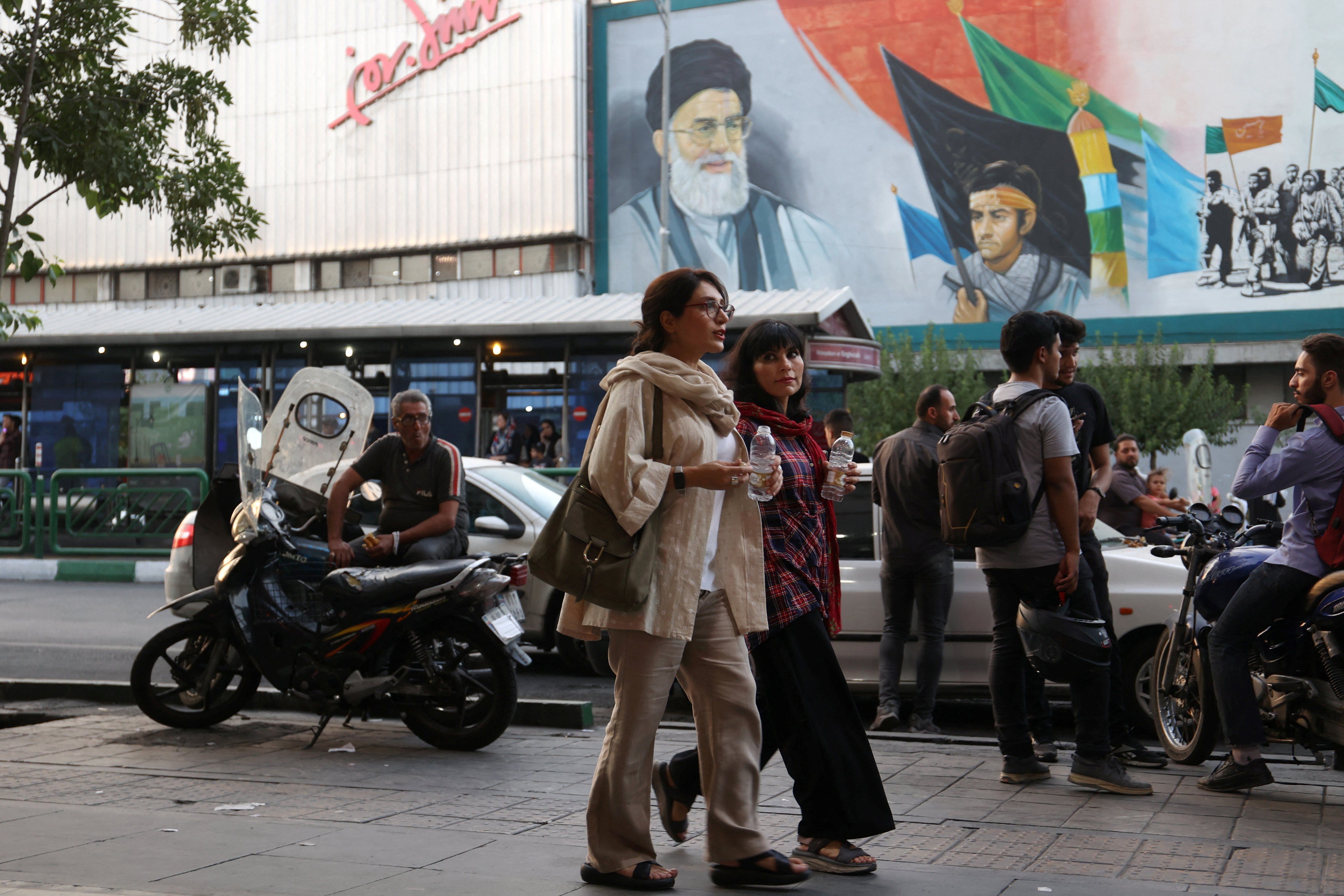Iranian women walk down a street with their hair exposed despite the revival of the morality police in Tehran, Iran.
Two weeks after announcing the return of its infamous “morality police,” Tehran is reviewing harsh new legislation to enforce the “modest dress” of both female and male Iranians – particularly famous ones.
Drafted by the Iranian judiciary, the Hijab and Chastity Bill would impose severe penalties for violations, including 5-10 years in prison and fines of up to 36 million tomans (US$750). It would also ramp up gender segregation at universities, hospitals, educational and administrative centers, parks, and tourist centers. But Article 43 – the so-called “celebrity clause” – has attracted the most attention. It would target actors, artists, and media personalities who declare solidarity with the “Woman, Life, Freedom” protests linked to the in-custody death of Mahsa Amini. Celebs could face fines of one-tenth of their wealth and be excluded from their professional activities for a specific period.
Iranian leaders clearly hope to scare celebrities into toeing the line, but after months of government leniency in the wake of Amini’s death and protests, renewed attempts to crack down are more likely to unveil more resistance and civil unrest.
